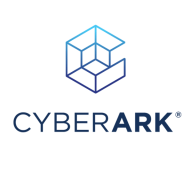

Fortinet FortiToken and CyberArk Identity are prominent security solutions competing in the identity management category. CyberArk Identity is considered superior due to its features, which users feel justify the higher cost.
What features are offered by Fortinet FortiToken in comparison to CyberArk Identity?Fortinet FortiToken users value its robust two-factor authentication, seamless integration with Fortinet products, and competitive pricing. CyberArk Identity is praised for its comprehensive identity management capabilities, including single sign-on, adaptive multi-factor authentication, and extensive security features. These functionalities give CyberArk Identity an edge.
What areas of improvement can be found in Fortinet FortiToken in comparison to CyberArk Identity?Users of Fortinet FortiToken suggest enhancing its reporting features, user management capabilities, and initial configuration process. CyberArk Identity users call for simpler configuration processes, enhanced mobile app performance, and improved user interface. FortiToken's areas for improvement are more technical, whereas CyberArk Identity's are more usability-focused.
How is the ease of deployment and customer service of Fortinet FortiToken in comparison to CyberArk Identity?Fortinet FortiToken's deployment is straightforward, although some find the initial configuration complex. CyberArk Identity receives mixed feedback on deployment; some find it straightforward, while others struggle with setup. Fortinet FortiToken users report quicker and more helpful support compared to CyberArk Identity, which offers more comprehensive onboarding.
What setup costs and ROI can be seen with Fortinet FortiToken in comparison to CyberArk Identity?Fortinet FortiToken is generally seen as cost-effective, with lower setup costs and solid return on investment. CyberArk Identity's initial costs are higher, but the extensive features and security enhancements provide a worthwhile ROI, making it a better long-term investment due to its advanced capabilities.
I have seen over 30% return on investment due to the improvement in operational efficiencies through automation, which enhances productivity.
They resolved the problem immediately after I reported it, on the same day, within one hour.
They respond immediately when requests are raised, and they are always available for priority one tickets.
I received prompt responses and support, which I would rate as very good.
Their resolution time is timely, and they provide solutions efficiently.
I am satisfied with their service.
We can use it on different phones and computers, demonstrating its scalability.
When delving deep into the concepts, there is a lot to address and learn, especially when facing real-time scenarios.
You can scale it out pretty easily, and you can implement it very small.
There is a need to scale more effectively to accommodate a larger number of users and bulk users.
Regarding Fortinet FortiToken's scalability, we can purchase licenses according to our needs.
I would rate scalability for Fortinet FortiToken as nine and a half or ten.
We no longer have our data infiltrated by unauthorized persons, and tracking actions within the system has become very easy.
When you have it in the cloud, you have CyberArk every time you need it.
With a stable network, due to the redundant data centers across the globe, it is a lot easier to use as a SaaS solution.
I would rate stability for Fortinet FortiToken as the best solution.
FortiToken is stable, but there are some restrictions when it comes to supporting two-factor authentication in multi-factor environments.
It would be helpful if they released a generalized document for processes such as migration.
Integration or deployment is extremely difficult for CyberArk Identity.
There's a need to enhance network performance.
Any Fortinet FortiToken cannot be removed; if a box expires or loses support, it cannot be removed, and customers must purchase it from scratch.
This would allow for broader distribution among a larger number of system admins and software engineers, which is currently not feasible with the existing hardware-only approach.
If I can receive it on email, it would be more flexible.
Regarding pricing, it can be quite a lot for small companies.
The pricing is acceptable.
If I am not going fully cloud, there are additional resources I will need to purchase, such as spinning more VMs or acquiring an HSM device to encrypt the vault.
Discounts are often provided to close deals, making it a cost-effective solution.
The pricing for FortiToken is not low; I regard it as medium-priced.
It impacts zero trust security strategies. It prevents lateral movements in the organization.
The two-factor authentication is very important, but the fact that every account is being regenerated every time we use it is the most important security feature for us.
It is the most powerful access management system.
The main use case of FortiToken is that it is a hardware-based solution, providing secure two-factor authentication for administrators.
Fortinet FortiToken provides very important security benefits because it is used to manage FortiGate from outside, exclusively with Fortinet FortiToken.
It is very user-friendly and easily integrates with various firewalls, making it convenient to use within diverse environments.
| Product | Market Share (%) |
|---|---|
| Fortinet FortiToken | 3.6% |
| CyberArk Identity | 1.7% |
| Other | 94.7% |


| Company Size | Count |
|---|---|
| Small Business | 20 |
| Midsize Enterprise | 4 |
| Large Enterprise | 10 |
| Company Size | Count |
|---|---|
| Small Business | 17 |
| Midsize Enterprise | 5 |
| Large Enterprise | 9 |
CyberArk Identity is a versatile identity management solution suitable for a wide range of enterprises. It is designed to enhance enterprise security and improve user experience. Its focus on security, compliance, and operational efficiency, combined with positive user feedback, makes it a strong contender in the identity management space.
CyberArk Identity offers a robust suite of features to manage user identities and access privileges. It focuses on securing access to resources across various environments, including cloud and on-premises applications. Its capabilities include single sign-on (SSO), multi-factor authentication (MFA), lifecycle management, and privileged access management. These features are engineered to streamline access control, enhance security, and ensure compliance with regulatory standards.
According to our user interviews, CyberArk Identity is praised for its reliability and user-friendly interface. IT professionals highlight the ease of integration with existing systems, while business executives appreciate the visibility it provides into access and identity management across the organization. Users also commend the responsive customer support, which is crucial for enterprise-level solutions.
IT Professionals found that CyberArk Identity's focus on multi-layered security significantly reduced the risk of data breaches and unauthorized access. With a centralized dashboard and automation features, you can streamline identity and access management tasks, saving time and reducing complexity. Finally, it helps meet various compliance requirements.
As we've seen, passwords alone don't keep unwanted guests out of your network. Password-only authentication has led to security breaches, malware infections, and policy violations. With two-factor authentication, a password is used along with a security token and authentication server to provide far better security. Authorized employees can remotely access company resources safely using a variety of devices, ranging from lpatops to mobile phones.
We monitor all Authentication Systems reviews to prevent fraudulent reviews and keep review quality high. We do not post reviews by company employees or direct competitors. We validate each review for authenticity via cross-reference with LinkedIn, and personal follow-up with the reviewer when necessary.